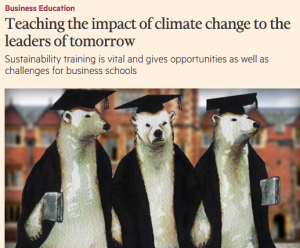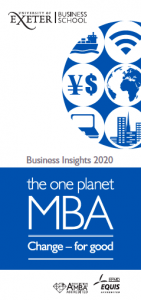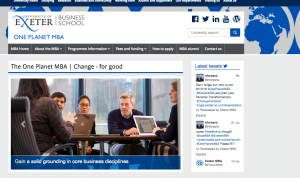As HSBC completes the world’s first commercially viable trade-finance transaction using blockchain, we ask our students: Is this a huge step towards efficiency and reducing errors in the funding of international trade, or does this undermine cryptocurrency’s value and decentralised character?
Georgie Hazell, MBA Participant 2018: “The clarity offered by regulation would probably increase the perceived legitimacy of virtual currencies. My vote is for regulation [acting like a] speed-bump in the short term, but an incentive in the longer term, boosting value and offering protection for investors. Speculation around regulation will probably cause greater volatility in the bitcoin price than actual implementation. When investors are unsure about the legitimacy of their cryptocurrency and how they are going to be taxed when they sell it, they will probably avoid or at least hold it until clarification is given.
Regulation could come in a number of forms, from reducing anonymity through demanding real names on bitcoin holdings and transactions, to outright bans (as in India). The trends in South Korea, with an initial plunge followed by a levelling out as the effects were clarified, is likely to offer a framework for other regions. The UK could do worse than following Japan’s lead, developing regulations that support the healthy growth of the technology.”
Gana Alampalle, MBA Participant 2018: “Bitcoin’s value lies in being an anonymous, effortless and secure payment system…in theory. This is also true for the numerous ‘alt-coins’ that have cropped up aiming to penetrate the market, each with their own USPs. It’s hard to see what real value that cryptocurrencies would offer if they were to be regulated. Prices would decrease substantially if anonymity were to be taken away. To add to this, hard-line regulations could potentially push cryptocurrencies further underground into the dark web where they would inevitably be traded illegally and continue to promote illicit activities.
What could be key to keeping the value of cryptocurrency is to manage exchanges and initial coin offerings while protecting the security and anonymity of coins by design. Policy makers have historically been good at regulating and appropriating currency innovations that the private sector put out. Effective cryptocurrency regulation however could be a tall order given the amount of international co-operation needed.”
The Exeter MBA’s ‘Leading in the 4th Industrial Revolution’ immerses students in emergent technological innovations. Blockchain applications continue to make headlines as the biggest revolution since the internet, and this month the University welcomed a global leader in research and development of blockchain technologies, nChain Group, to field questions in a discussion panel. Watch it here: https://www.youtube.com/watch?v=Fx2Cne2Vw9M















